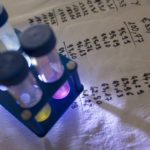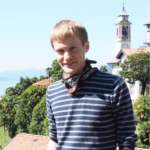Lien vers Pubmed [PMID] – 36745224
Lien DOI – 10.1007/s00285-023-01876-x
J Math Biol 2023 Feb 02; 86(3):43
Cell-to-cell variability, born of stochastic chemical kinetics, persists even in large isogenic populations. In the study of single-cell dynamics this is typically accounted for. However, on the population level this source of heterogeneity is often sidelined to avoid the inevitable complexity it introduces. The homogeneous models used instead are more tractable but risk disagreeing with their heterogeneous counterparts and may thus lead to severely suboptimal control of bioproduction. In this work, we introduce a comprehensive mathematical framework for solving bioproduction optimal control problems in the presence of heterogeneity. We study population-level models in which such heterogeneity is retained, and propose order-reduction approximation techniques. The reduced-order models take forms typical of homogeneous bioproduction models, making them a useful benchmark by which to study the importance of heterogeneity. Moreover, the derivation from the heterogeneous setting sheds light on parameter selection in ways a direct homogeneous outlook cannot, and reveals the source of approximation error. With view to optimally controlling bioproduction in microbial communities, we ask the question: when does optimising the reduced-order models produce strategies that work well in the presence of population heterogeneity? We show that, in some cases, homogeneous approximations provide remarkably accurate surrogate models. Nevertheless, we also demonstrate that this is not uniformly true: overlooking the heterogeneity can lead to significantly suboptimal control strategies. In these cases, the heterogeneous tools and perspective are crucial to optimise bioproduction.


